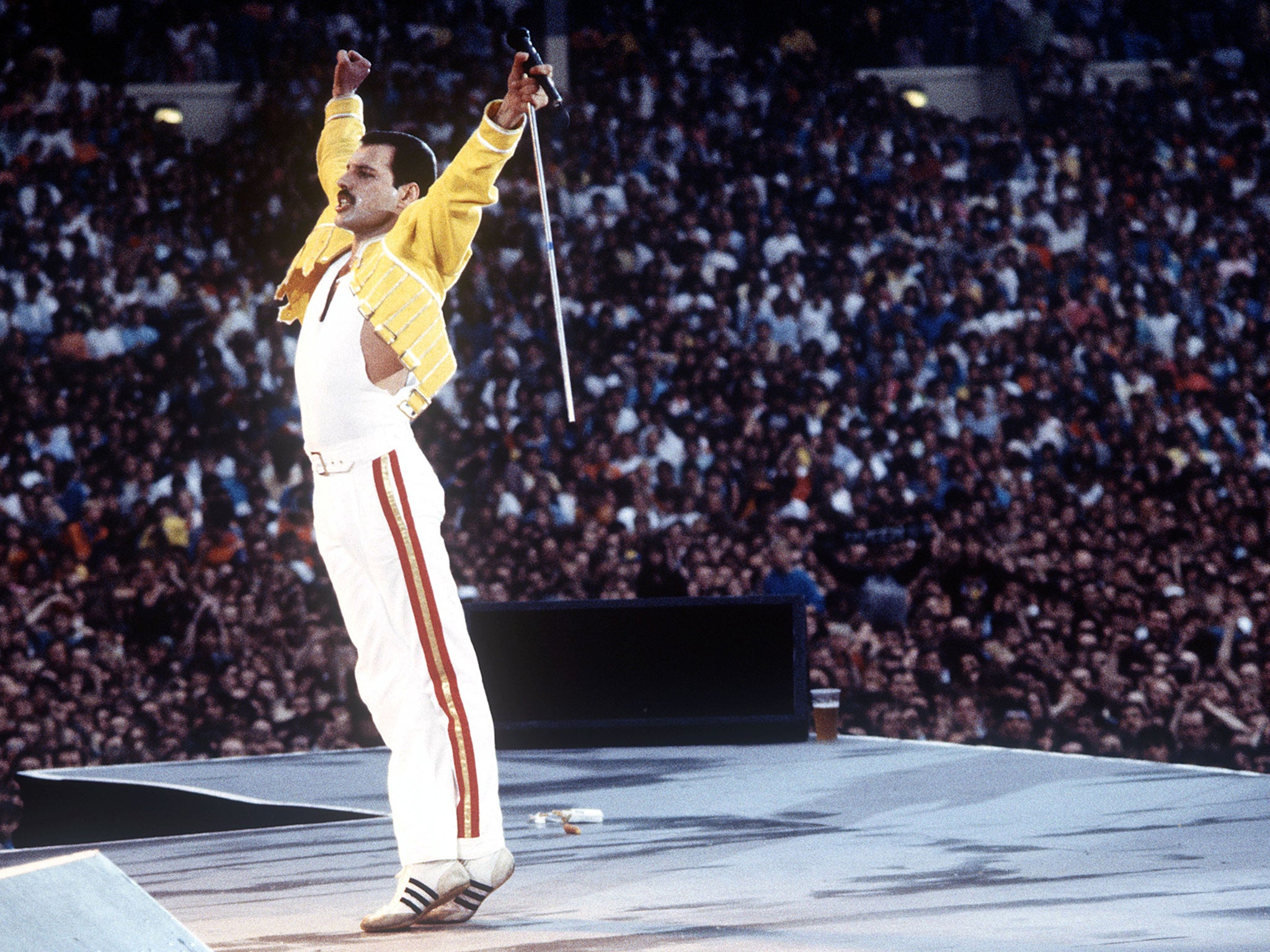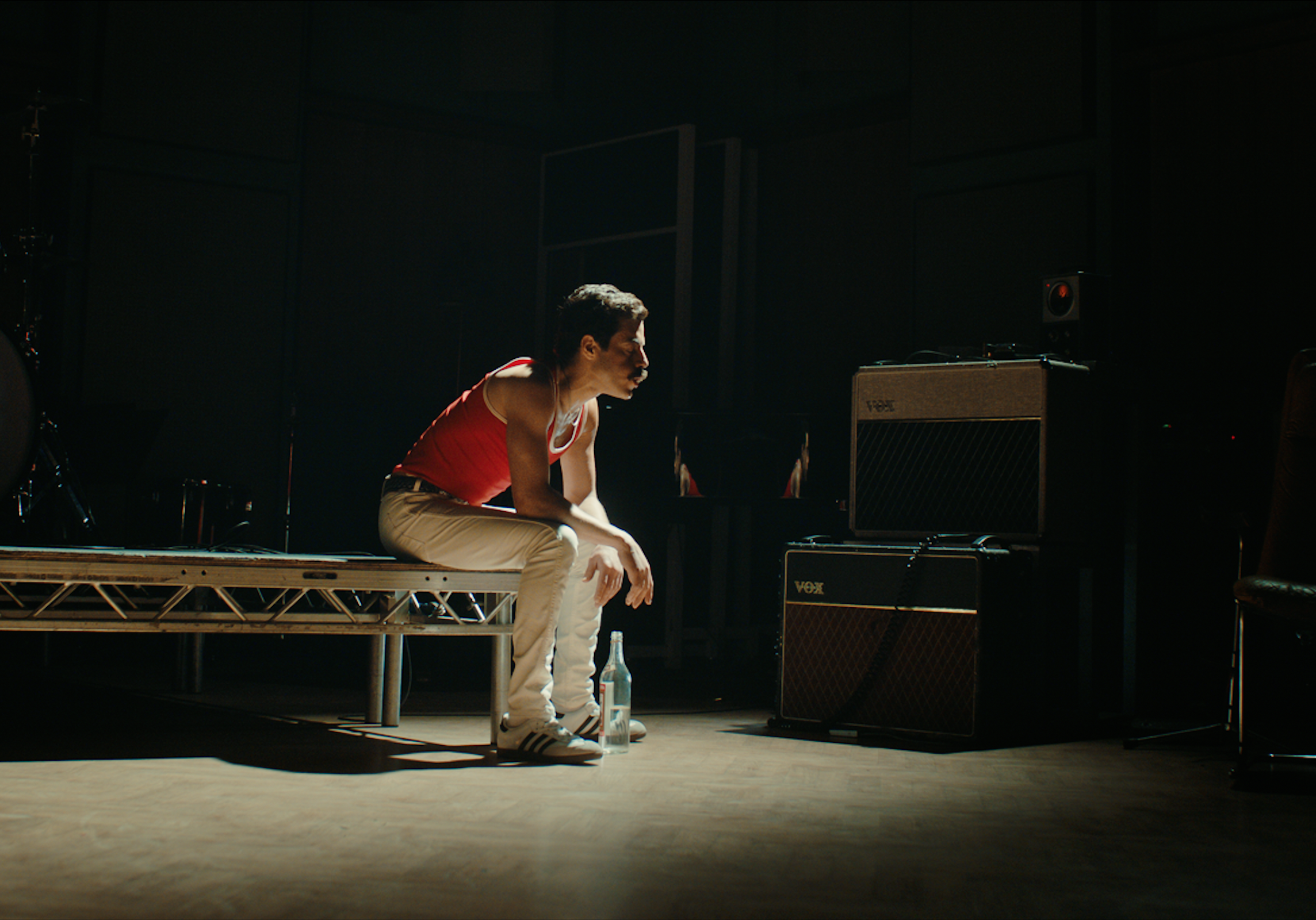Bohemian Rhapsody: How the Oscar-nominated Queen biopic almost never happened
Departure of Sacha Baron Cohen and director Bryan Singer among setbacks delaying arrival of Freddie Mercury story on the big screen
Your support helps us to tell the story
From reproductive rights to climate change to Big Tech, The Independent is on the ground when the story is developing. Whether it's investigating the financials of Elon Musk's pro-Trump PAC or producing our latest documentary, 'The A Word', which shines a light on the American women fighting for reproductive rights, we know how important it is to parse out the facts from the messaging.
At such a critical moment in US history, we need reporters on the ground. Your donation allows us to keep sending journalists to speak to both sides of the story.
The Independent is trusted by Americans across the entire political spectrum. And unlike many other quality news outlets, we choose not to lock Americans out of our reporting and analysis with paywalls. We believe quality journalism should be available to everyone, paid for by those who can afford it.
Your support makes all the difference.Bohemian Rhapsody, the biopic of Queen centring on the band’s flamboyant frontman Freddie Mercury, is in contention to win Best Picture at the Oscars this weekend.
However, the film took a decade to arrive on the big screen after experiencing one of the most turbulent production histories in recent memory.
It lost its provisional lead at a crucial stage over disagreements with surviving band members and then suffered a last-minute directorial disaster.
Initial talks over the possibility of a Queen biopic first began in 2008, when guitarist Brian May and drummer Roger Taylor met with screenwriter Peter Morgan, a specialist in real-life subject matter having scripted The Queen, Frost/Nixon (both 2006), The Damned United (2009) and Rush (2013).
Queen continued to tour in the wake of Freddie’s death from AIDS in 1991, with Paul Rodgers and then Adam Lambert taking over vocals, and were the subject of the West End musical We Will Rock You, written by Ben Elton, which ran for 12 years at London’s Dominion Theatre between 2002 and 2014.
There was clearly a ready-made audience in place for the prospective movie, a new generation introduced to the band thanks to the inspired use of “Bohemian Rhapsody” at the beginning of Penelope Spheeris’s cult comedy Wayne’s World (1992). When Ali G and Borat star Sacha Baron Cohen became attached, anticipation only grew, the fearless comedian seemingly ideal casting for Mercury.
Morgan admitted his anxieties about the forthcoming film, particularly with regard to offending the surviving band members, in an October 2009 interview with Cinemablend: “I’m not sure how much they’ll like what I write. I think they’ll recognise the truth in it, but it’s a series of painful memories for them. I’m essentially writing about the most painful time in the band’s history.”
He also addressed the project’s plan to build up to Queen’s legendary Live Aid performance at Wembley Stadium on 13 July 1985 rather than focusing on Freddie’s personal life and tragic decline.
“I didn’t want to write an AIDS movie, to be honest with you. And then, I just looked the period - It’s sort of where he rejects [his bandmates] and comes back to them. It’s sort of like a family movie. It’s sort of like ‘I hate my family, I want to be independent, and then I come back’.”
In September 2010, May told the BBC’s HARDtalk the film was pressing ahead. “I think we’ll try and keep ourselves out of it as much as we can,” he said, referring to himself, Taylor and bassist John Deacon.
“We have the perfect combination to tell the real story behind their success,” producer Graham King promised.
Although shooting had been pencilled in to begin in 2011, none took place. Speaking again to Cinemablend that October, Morgan was more cryptic about the untitled project’s prospects: “You never know until it’s done.”
By March 2012, Tom Hooper was being touted by Deadline as a potential director, having worked with Morgan on The Damned United and recently enjoyed awards success with The King’s Speech (2010). That June, Katy Perry denied rumours she would play Freddie’s former girlfriend, Mary Austin.
In October 2012, Brian May gave an update on his blog following a meeting with Taylor and Queen’s long-serving manager Jim Beech: “The pieces are all falling into place, though we are now on a slightly later schedule – filming is now scheduled to start in the spring [of 2013], with Sacha Baron Cohen playing Freddie. The film should be ready for release early in 2014.”

But disaster struck on 22 June 2013 when Cohen dropped out over creative differences, with Deadline reporting: “The reason is that the band wanted to make more of a PG movie about Queen while Cohen was counting on a gritty R-rated tell-all centered around the gifted gay singer.”
In September, Morgan conceded the project was “probably not going to happen” as Taylor elaborated in an interview with Mojo that the band had come to fear their erstwhile star would treat the role as “a joke”.
A month later, May told Classic Rock Cohen would have been too much of a “distraction”: “You have to really suspend that disbelief – the man who plays Freddie, you have to really believe is Freddie. And we didn’t believe that could really happen with Sacha.”
Dominic Cooper was reportedly considered as a replacement for Cohen before new life was unexpectedly breathed into the project in December when Ben Whishaw was cast, with actor Dexter Fletcher in the director’s chair, having caught the eye with Sunshine on Leith (2013), his film based on the music of the the Proclaimers.
The following year, the production stalled again when Fletcher departed, apparently not seeing “eye to eye [with the producers] on what will be an R-rated pic about Mercury”. Whishaw told Time Out that August: ”It seems to be on a back burner. It was going, then there were problems getting the script working.”
There were no further developments until November 2015, when Anthony McCarten was hired to revise the script on the strength of his work on the Stephen Hawking biopic The Theory of Everything (2014).

In March 2016, Sacha Baron Cohen appeared on American “shock jock” Howard Stern’s radio show to give his side of the story:
“A member of the band - I won’t say who – said: ‘You know, this is such a great movie because it’s got such an amazing thing that happens in the middle.’
“’What happens in the middle of the movie?’ He goes: ‘You know, Freddie dies.’ I go: ‘What happens in the second half of the movie?’ He goes: ‘We see how the band carries on from strength to strength.’
“I said: ‘Listen, not one person is going to see a movie where the lead character dies from AIDS and then you see how the band carries on.’”
Brian May hit back at the comedian, telling The Mail on Sunday: “Sacha became an arse. We had some nice times with Sacha kicking around ideas, but he went off and told untruths about what happened.”
The project finally picked up the momentum that would bring it to fruition in November 2016, when X-Men director Bryan Singer and Rami Malek stepped in. The actor, an Egyptian-American with the right jawline, was chosen in part because his African roots were loosely similar to Mercury’s, the singer born Farrokh Bulsara in Zanzibar and raised in India.

Appearing on The Late Show with Stephen Colbert in May 2017, Malek discussed the role and revealed his daunting experience of having to sing in front of May and Taylor at Abbey Road Studios.
The cast was filled out in August, with Ben Hardy playing Taylor, Gwilym Lee as May and Deacon being played by Joseph Mazzello, a former child star best remembered for Jurassic Park (1992). Justin Haythe, who adapted the Richard Yates novel Revolutionary Road for Sam Mendes in 2008, boarded to punch up the screenplay.
Shooting at last began in September, a huge replica Wembley set built in an airfield outside of Hemel Hempstead for the Live Aid scenes. Aiden Gillen and Tom Hollander joined the cast as Queen managers John Reid and Beech respectively while Mike Myers was cast as EMI executive Ray Foster, a thank you for Wayne's World.
With all finally progressing according to plan, 20th Century Fox suddenly announced on 1 December that it has “temporarily halted production on Bohemian Rhapsody due to the unexpected unavailability of Bryan Singer”. According to The Hollywood Reporter, the cast had mutinied over Singer’s behaviour on set, the director allegedly arriving late on a regular basis.
The BBC, meanwhile, reported Singer’s absence was due to “a personal health matter concerning Bryan and his family”.
Three days later, Singer's departure from Bohemian Rhapsody was confirmed, the director issuing a statement saying Fox had refused to allow him to return to the US to care for an ill parent and denying he had fallen out with Malek.
“I wanted nothing more than to be able to finish this project and help honour the legacy of Freddie Mercury and Queen, but Fox would not permit me to do so because I needed to temporarily put my health, and the health of my loved ones, first,” he said.
Dexter Fletcher returned to oversee the last two weeks of shooting and post-production, finally bringing the saga to a close.
In an interview with The Guardian ahead of Bohemian Rhapsody‘s release in October, Malek addressed his decision to take on the role, describing it as a “gun-to-the-head moment”.
“What do you do? And I like to think if it’s a fight or flight situation, I’m going to fight. The scariest endeavours that I’ve chosen to take in my life have been the most fulfilling and rewarding. And this has proven to defend that equation.”
On the film’s approach to Mercury himself, Malek reflected: “I think if you don’t celebrate his life, and his struggles, and how complicated he was, and how transformative he was – and wallow instead in the sadness of what he endured and his ultimate death – then that could be a disservice to the profound, vibrant, radiant nature of such an indelible human being.”

Join our commenting forum
Join thought-provoking conversations, follow other Independent readers and see their replies
Comments